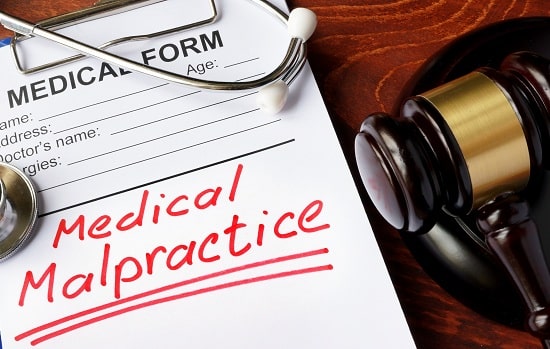One example of personal injury case is medical malpractice. The victims and their families suffer much because of fear, financial burden, and the tedious legal process they need to face. But, suspected cases of medical malpractice should not be kept in silence. Equip yourself with the right information about medical malpractice to guide you if you or a loved one experiences it.
Learn what cases qualify as medical malpractice by reading below.
Actions Deviated From Accepted Medical Standards
Firms like Raphaelson Levine explain that medical malpractice happens when a licensed medical professional, such as a doctor, nurse, or anesthesiologist, commits an error, harming the patient’s health. Medical malpractice occurs when the actions of the healthcare professional deviate significantly from accepted medical standards. Because malpractice claims are difficult to prove, it’s important to seek legal help from a malpractice lawyer.
Check the following examples of malpractice claims resulting from actions that deviated from medical standards:
- Incorrect or delayed diagnosis
- Ignoring or misreading laboratory results
- Failure to treat
- Prescription medication errors
- Childbirth injuries
- Surgical or procedural mistakes
- Premature discharge
- Poor follow-up care
Injury Caused By Negligence
Medical professionals are governed by the law and are expected to deliver quality patient care consistent with the standard of care. If proven that the medical worker fails to follow the standard, then there’s negligence involved.
Besides the violation of the standard of care, the presence of injury must be proven to consider a medical malpractice claim valid. Moreover, that the healthcare worker’s negligence caused the injury must be established. Otherwise, there’s no valid medical malpractice case.
Injury Caused Significant Damage
Pursuing a medical malpractice case against a surgeon, nurse, or any other medical professional can be expensive. For this reason, it’s advised that cases constituting minor damages be amicably settled instead of going to court. Serious forms of medical malpractice, such as surgical errors, can make the practitioner liable for huge damages.
A patient who wants to pursue a medical malpractice case must be able to prove that the case resulted in the following:
- Disability: The injury led to temporary or permanent disability, hindering the patient from returning to work and providing needs for the family. One good example is amputating a patient’s leg that could have otherwise been saved if not for an incorrect diagnosis.
- Loss Of Income: A patient can prove that the injury makes it impossible for him to earn money, entitling him to proper compensation. For instance, a patient can file a medical malpractice claim upon sustaining an allergic reaction to injected antibiotics that prevented him from working for several days because the nurse failed to conduct a skin test before administering the drug.
- Unusual Pain: Chronic and debilitating pain may result because of negligence. A patient can raise a medical malpractice claim because of a painful surgical operation due to the incorrect dose of anesthetic given by the anesthesiologist, resulting in pain and suffering and emotional trauma.
- Suffering And Hardship: The patient must prove the negligence resulted in significant suffering and hardship. One example is experiencing financial difficulties by paying costly medical bills and expenses as caused by the incident. For instance, a cosmetic surgeon can be sued for medical malpractice if the patient lapses into a protracted coma after a liposuction procedure because of too much blood loss, resulting in huge hospital bills.
Medical Malpractice Claims In The New Normal
The pandemic has brought tremendous impact on public health and economies in the world. Vaccination has started, but doubts, concerns, and questions are being raised.
According to a trusted source, 37% of adults in the United States refuse to get a vaccination, which could be attributed to the long history of Black Americans’ medical malpractice. Questions have been raised about who will be responsible for untoward effects of experimental COVID-19 vaccines, such as the following:
- Who will be responsible for any allergic reaction or untoward emergency arising from COVID vaccination?
- Will medical professionals not be liable for the potential problems caused by COVID vaccines?
- How will a patient or his family prove that a complication or death is due to COVID vaccination?
- Will the vaccine manufacturers provide compensation to the families of people who will be harmed or die due to COVID vaccine adverse reactions?
A qualified medical malpractice lawyer can answer these questions. If you have questions about a malpractice claim arising from the COVID-19 vaccination, talk to a medical malpractice lawyer today.
Conclusion
Healthcare professionals follow a certain code of ethics and standard operating procedures approved by respected medical organizations. If a patient complains of harm because of a medical procedure, medication, or treatment, it will warrant prompt investigation. Medical malpractice constitutes negligence, violation of care, and significant injury and damage.



















